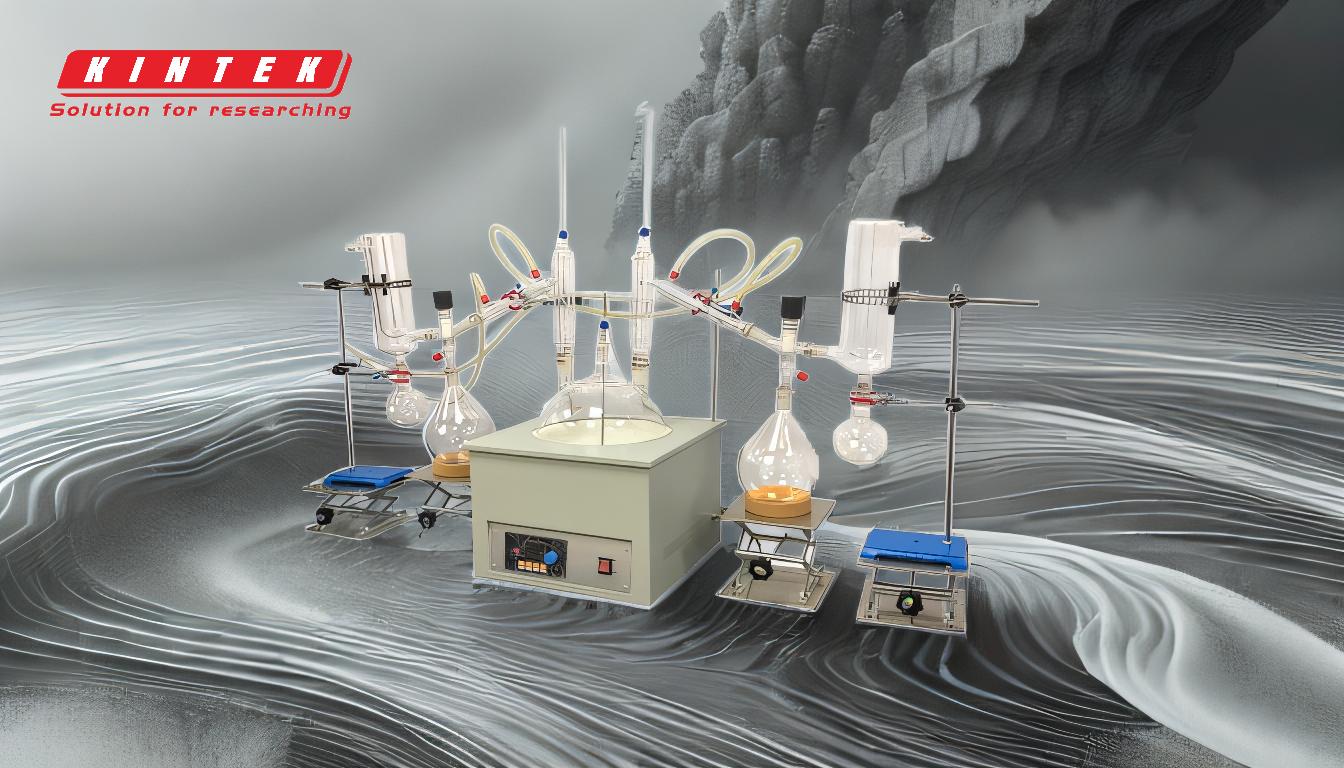Molecular distillation is a specialized form of vacuum distillation that operates under extremely low pressures, typically below 0.01 torr (1.3 Pa). This process is designed to separate, purify, and concentrate thermally sensitive and high molecular weight compounds, such as cannabinoids, vitamins, and polyunsaturated fatty acids. The key feature of molecular distillation is the free molecular flow regime, where the mean free path of molecules is comparable to the distance between the evaporation and condensation surfaces. This allows for efficient separation of components based on their differing evaporation rates, making it ideal for processing complex and delicate materials.
Key Points Explained:

-
Definition and Operating Conditions:
- Molecular distillation is a type of vacuum distillation that operates at pressures below 0.01 torr (1.3 Pa).
- This low-pressure environment ensures that the process occurs in the free molecular flow regime, where the mean free path of molecules is significant relative to the equipment size.
-
Free Molecular Flow Regime:
- In the free molecular flow regime, molecules travel in straight lines without frequent collisions, which is crucial for the efficiency of molecular distillation.
- The mean free path of molecules must be comparable to or greater than the distance between the evaporation and condensation surfaces.
-
Short-Path Distillation:
- Molecular distillation is often referred to as short-path distillation because the distance between the heated evaporation surface and the condensing surface is minimized.
- This short path reduces the likelihood of molecules colliding with other molecules or the walls of the equipment, ensuring a more efficient separation process.
-
Applications:
- Molecular distillation is used for the separation, purification, and concentration of natural products, complex molecules, and thermally sensitive materials.
- Common applications include the processing of cannabinoids, vitamins, and polyunsaturated fatty acids, which are often sensitive to high temperatures and require gentle handling.
-
Equipment and Setup:
- The process typically involves a molecular still, which includes a heated evaporation surface and a closely placed condensing surface.
- The high vacuum and short distance between surfaces are critical for the effective functioning of the equipment.
-
Advantages:
- Molecular distillation allows for the separation of compounds with high molecular weights and boiling points without causing thermal degradation.
- The process is highly efficient and can achieve high purity levels, making it suitable for producing high-quality products.
-
Challenges:
- The equipment must be precisely designed to maintain the necessary vacuum and short path distances.
- Any deviation from the optimal conditions can result in reduced efficiency or failure of the distillation process.
-
Comparison with Other Distillation Methods:
- Unlike traditional distillation methods, molecular distillation operates at much lower pressures and temperatures, making it suitable for heat-sensitive materials.
- The process is more specialized and requires more sophisticated equipment compared to conventional distillation techniques.
By understanding these key points, one can appreciate the unique capabilities and applications of molecular distillation, particularly in industries requiring the processing of delicate and complex substances.
Summary Table:
| Aspect | Details |
|---|---|
| Operating Pressure | Below 0.01 torr (1.3 Pa) |
| Key Feature | Free molecular flow regime |
| Applications | Cannabinoids, vitamins, polyunsaturated fatty acids |
| Equipment | Molecular still with heated evaporation and closely placed condensing surfaces |
| Advantages | No thermal degradation, high purity, efficient separation |
| Challenges | Requires precise vacuum and short-path design |
Discover how molecular distillation can enhance your processes—contact us today for expert guidance!









